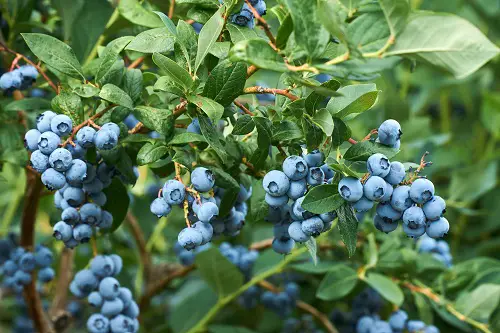Check out the Best Blue Fruits with a distinct hue! They will surely stand out in the garden and in your platter!
Have a look at the Best Blue Fruits that you can grow along with different plants and flowers in your garden for a touch of royal tint!
Explore the most Exotic Fruits from Around the World here
Best Blue Fruits
1. Concord Grapes

Botanical Name: Vitis labrusca ‘Concord’
These frosty blue grapes give a mouthwatering sweet flavor. The fruits originally have a light green tint and then take an indigo-purple hue when they mature.
Learn How to Grow Grapes in Pots & Care here
2. Black Currants
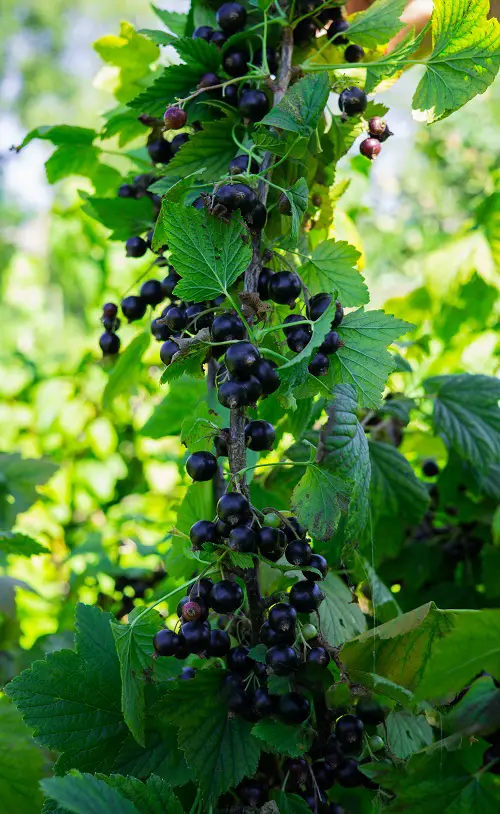
Botanical Name: Ribes nigrum
These dark blue-black berries are a good vitamin C, calcium, and potassium source. This blue fruit gives a honey-sweet pleasant taste and is also used in various desserts.
3. Damson Plum
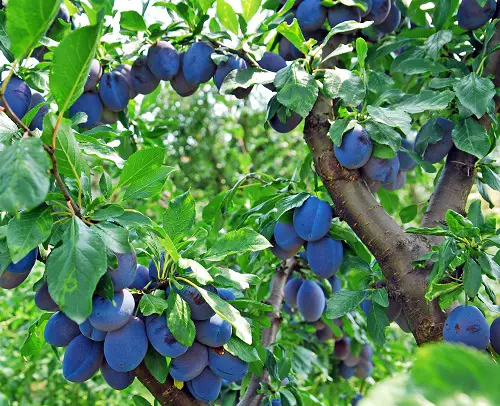
Botanical Name: Prunus domestica subsp. insititia
These deep blue plums come from England. The skin of this fruit is quite tart, which lessens after baking or cooking. You can make a cake, plum butter, or dumplings with these. It is one of the Best Blue Fruits you can grow!
4. Mexican Husk Tomato
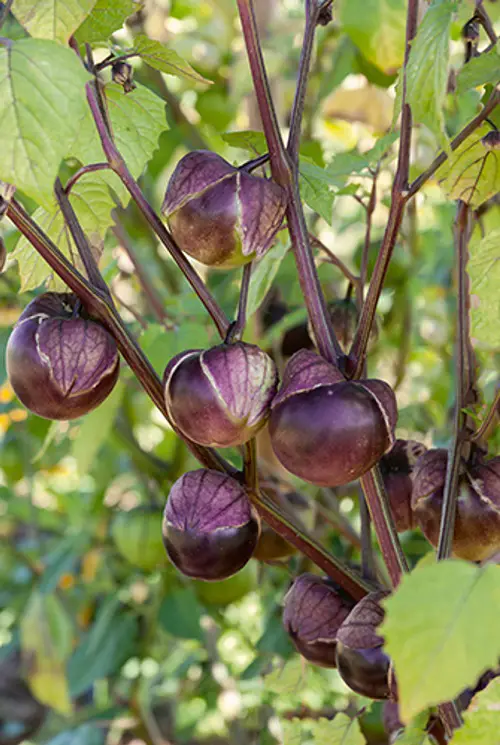
Botanical Name: Tomatillos ‘Blue’
Generally, tomatillos are green, but this one stands out with a distinct blue hue on the outer skin. Add them in corn and beans with nachos for the best flavor!
Unveil the 15 Secrets to Growing Tomatoes in Containers here
5. Blue Elderberries
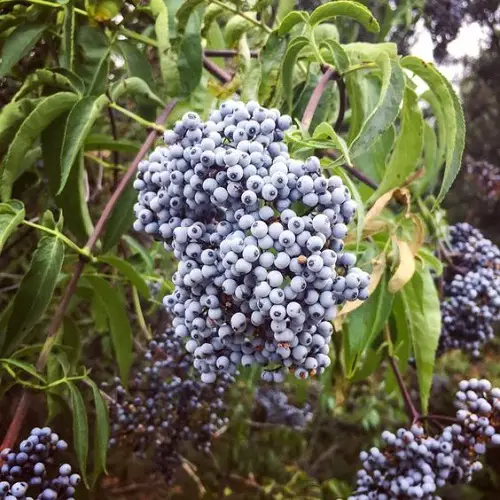
Botanical Name: Sambucus cerulea
Blue elderberries are indigenous to the US and have light to the dark blue outer skin. They are the main food source for birds in California. You can eat them fresh, cook them, or transform them into wine, syrup, jam, and pies.
Do Elderberries Grow in Arkansas? Learn here
6. Blue Hubbard Squash
Botanical Name: Cucurbita maxima ‘Blue Hubbard’
This oval and plump blue squash have a semi-thin pale blue-green-gray rind. The flesh is orange to golden yellow with cream-colored seeds.
Learn the Different Names of Squash here
7. Blueberries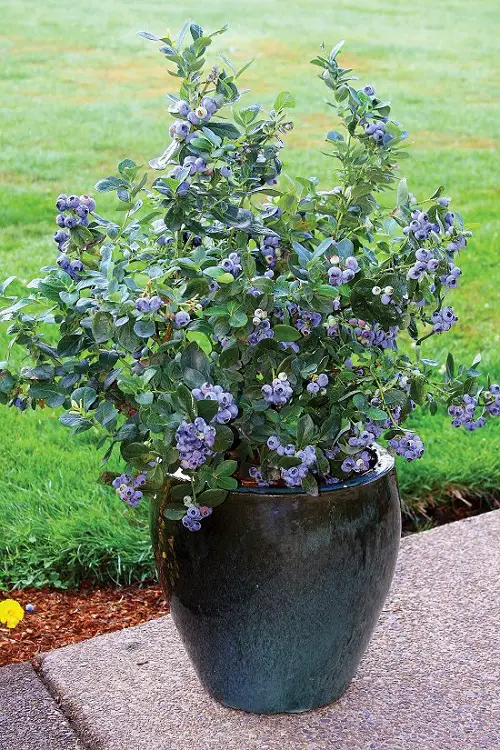
Botanical Name: Vaccinium sect. Cyanococcus
Blueberries are rich in minerals, vitamins, and antioxidants. You can bake them, eat blueberries, or add berries to smoothies. For the best decoration, add them to pies and desserts for that rich blue color!
How to Grow Blueberry in Container here
8. Fahrenheit Blue Tomatoes
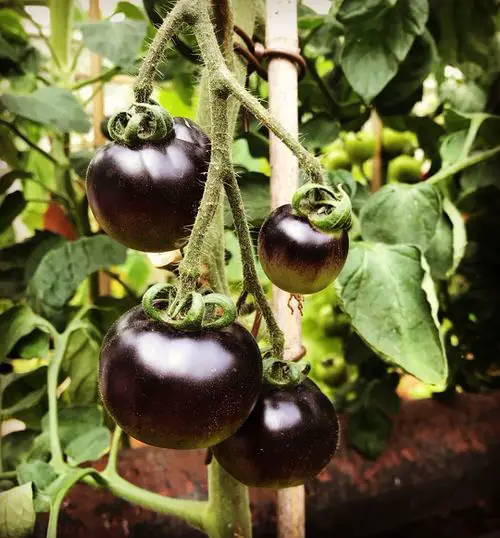
Botanical Name: Solanum lycopersicum ‘Fahrenheit Blue’
These cherry-sized tomatoes have intense blue skin, which can be so dark that it makes them appear black. They are high in antioxidants and give a sweet flavor.
9. Saskatoon Berries
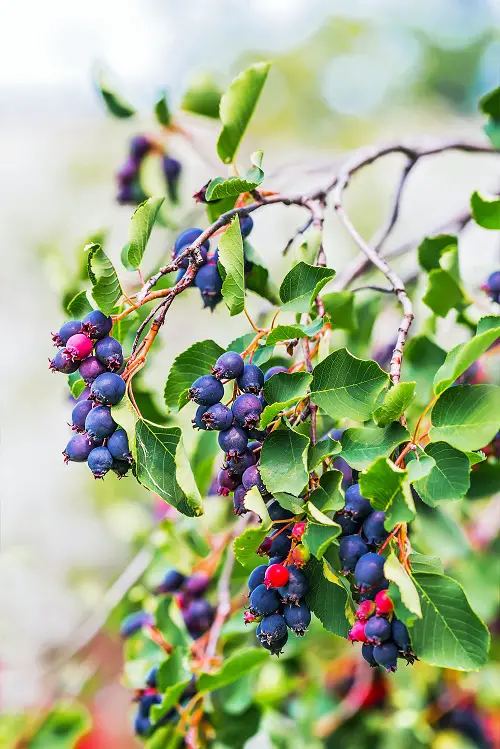
Botanical Name: Amelanchier alnifolia
These berries are named after the capital of the province of Saskatchewan. Their outer skin has a purple-blue hue and has a sweet, nutty, almond flavor.
Do you Know Berries Grow in Hanging Baskets too? Click here
10. Sweetberry Honeysuckle
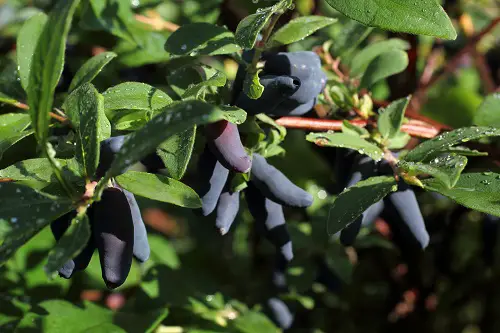
Botanical Name: Lonicera caerulea
Native to Siberia and northern Asia, they have a grape-like shape and a dark blue-indigo outer skin. The juicy fruits taste like a mix of floral honey to agave syrup.
11. Blue Marble Fruit
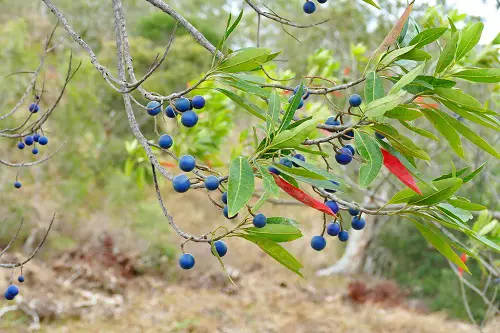
Botanical Name: Elaeocarpus angustifolius
Blue marble fruit comes from the ‘Tucker Bush’ tree, which grows in the Australian outback. The fruits have bright, sky-hued cerulean blue skin and are rich in vitamin C.
12. Juniper Berries

Botanical Name: Juniperus communis
These berries have a royal blue outer skin, which makes them stand out with the light green foliage. They have a tart taste and go really well with sauces or pies.
13. Bilberry
Botanical Name: Vaccinium myrtillus
Also popular as European blueberries or whortleberry, they have an indigo-blue outer skin with a concentrated blueberry taste.
14. Huckleberries
Botanical Name: Vaccinium membranaceum
Huckleberries have a matt blue color, which takes a bright hue as they become ready to harvest. They are high in antioxidants and vitamin C.
15. Ceylon Blue Olives
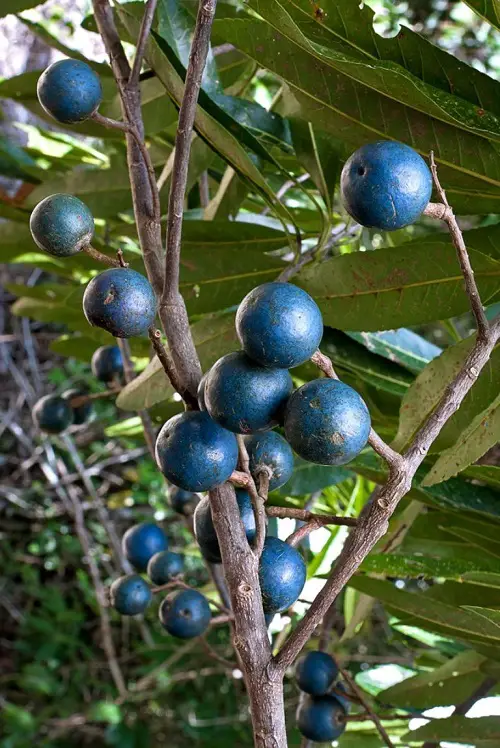
Botanical Name: Elaeocarpus serratus
Native to Sri Lanka, the fruits of this tree have bright blue skin and green flesh. They have a sweet-sour taste, which makes them a perfect choice for sweet and savory cuisines.



